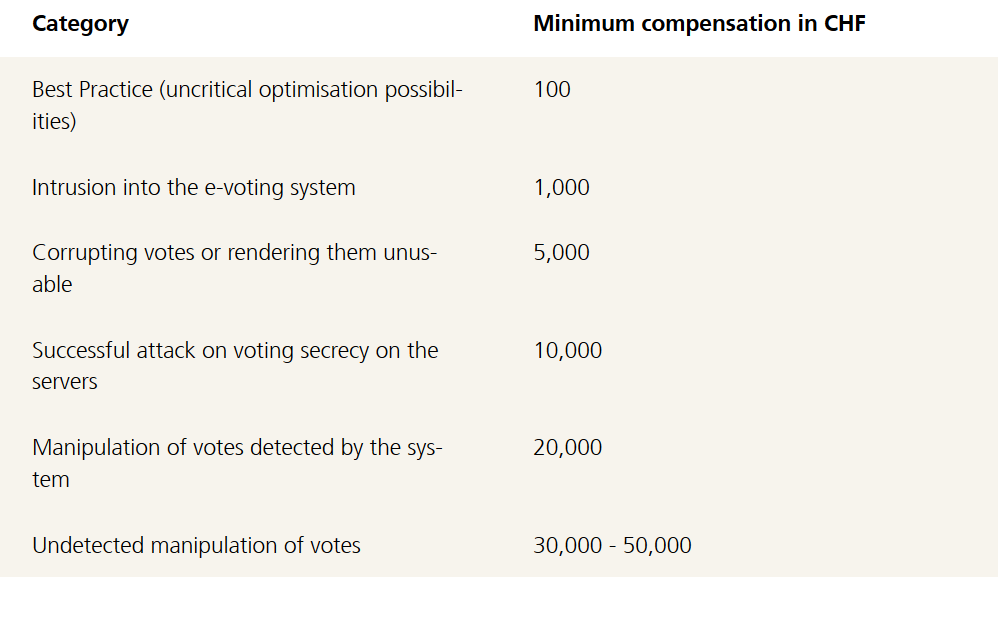Switzerland is inviting white hats from all around the world to try to compromise its future electronic voting system during an upcoming mock election. The hope is that any software flaws will be found and removed before the system is used for real.
The ‘public intrusion test’ is starting on February 25 and will run until March 24, when the would-be ballot box will be decrypted and opened, according to this announcement on the blog of Swiss Post, which operates the system.
“An intrusion test is already being carried out by an accredited body as part of the certification process. The public intrusion test has the added benefit of including a large number of people to test the security of a system,” reads a section on the website dedicated to the test.
The site will also handle the submission of vulnerabilities that may be found in the e-voting system. Each flaw will be analyzed by an independent company and is set to be rewarded with up to 50,000 Swiss Francs (roughly US$50,000) if it leads to an undetected vote-manipulation attack. A total of 150,000 Swiss Francs will be up for grabs.
The test is open to anybody from anywhere in the world; all they need to do is sign up on the dedicated site and download their dummy electronic voting cards.
Switzerland is known for holding many votes, especially referendums on specific issues; in 2018 alone, the Swiss were called to the ballot boxes four times in a total of 10 referendums. Most of Switzerland’s 26 cantons have, since 2004, allowed the Swiss living outside the country to cast their ballots electronically on a trial basis, and several have provided the same option also for residents. The government is looking to make e-voting an ever more prominent part of the country’s voting process as an alternative to in-person and postal balloting.
Meanwhile, the (in)security of electronic voting systems in general has been a serious concern in many countries. ESET’s Trends 2018 report weighed in, too, broaching the possible implications of insecure online voting systems for democracy.






